A review of "The Capote Tapes," a podcast preview and a wrap-up of three film festivals are all in the latest Movies with Meaning post on the web site of The Good Media Network, available by clicking here.
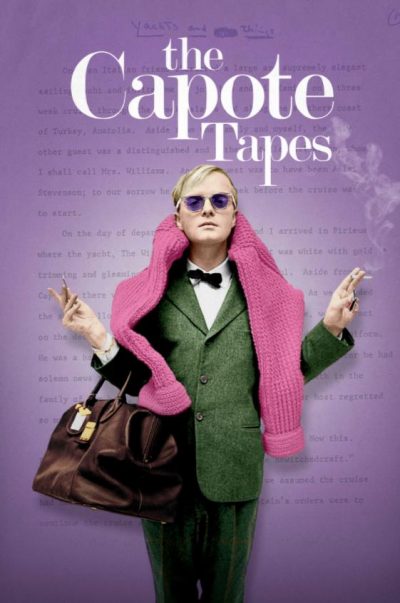
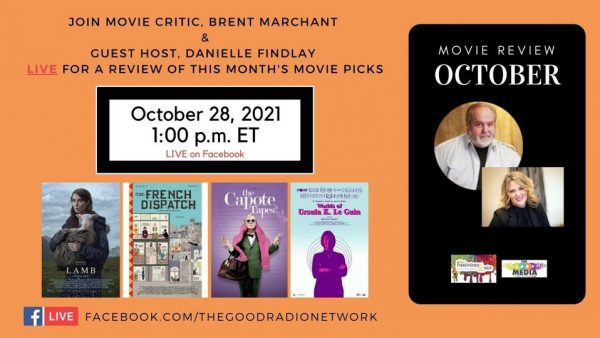




A review of "The Capote Tapes," a podcast preview and a wrap-up of three film festivals are all in the latest Movies with Meaning post on the web site of The Good Media Network, available by clicking here.






“The Capote Tapes” (2019 production, 2021 release). Cast: Interviews: Dick Cavett, Jay McInerney, Sally Quinn, André Leon Talley, Kate Harrington, Dotson Rader, Sadie Stein, Lewis Lapham, John Richardson, Colm Toíbín, Stephen Mitchell (voiceovers). Archive Footage/Interviews: Truman Capote, Lauren Bacall, Norman Mailer, George Plimpton, Candice Bergen, Audrey Hepburn, Mick Jagger, Johnny Carson, Andy Warhol, Lee Radziwill, Harper Lee, Perry Smith, William F. Buckley Jr., John Megna, George Axelrod, Gavin Lambert, Barbara Lawrence, Babs Simpson, Bob Colacello, Donald Brooks, Jack Dunphy, Babe Paley, Kate Paley, Bill Paley, Ann Woodward, Slim Keith, Marella Agnelli, Louise Malhado Grunwald, C.Z. Guest, Gloria Guinness, Loel Guinness, Phoebe Pierce, Nancy Ryan, Leonora Hornblow, Piedy Lumet, Judy Green. Director: Ebs Burnough. Screenplay: Ebs Burnough and Holly Whiston. Web site. Trailer.

It’s truly astounding how we can sometimes blind ourselves to what should be obvious. Yet, if we let our imaginations run wild, we may fall prey to delusional notions that leave us oblivious and sitting in the middle of a mess that’s nearly impossible to rectify. It might not matter how intelligent or talented we are, either; when erroneous beliefs settle in and make themselves comfortable in our consciousness, there’s no telling what havoc they can unleash. As unlikely as such a prospect may seem, however, that’s exactly what happened to a prominent American literary icon, as detailed in the captivating and stunning new documentary, “The Capote Tapes.”
Truman Capote (1924-1984) was one of the most noteworthy American authors of the 20th Century, even if he was not known for being overly prolific. Born in New Orleans as Truman Streckfus Persons, he was abandoned by his mother when she divorced his father. At age 2, he was sent to live with his mother’s relatives in Monroeville, Alabama, and, several years later, when his mother remarried, Truman moved to New York and took the last name of his Cuban stepfather, José Garcia Capote. But, by the time he moved north, many aspects of his future had already started to develop, particularly his love of writing and his fascination with the lives of others.
While still living in Alabama, Truman’s innate interest in writing received a boost from his relationship with friend, neighbor and budding wordsmith Harper Lee (1926-2016), who would later go on to become the Pulitzer Prize-winning author of the acclaimed novel To Kill a Mockingbird, published in 1960. Capote and Lee had many childhood adventures together and would remain lifelong friends and colleagues. What’s more, they were also sources of literary inspiration for one another. Lee provided the template for one of the characters in Capote’s debut novel, Other Voices, Other Rooms, while Truman was the inspiration for Dill Harris, a talkative, precocious young lad who always seemed to be in the middle of everybody’s business in Mockingbird. One need only see actor John Megna’s portrayal of the character in the movie version of Lee’s book (as apparent in film clips included in this documentary) to see how Truman helped give birth to the fictional youngster’s pompous, busybody persona. In many ways, a young Capote would eventually grow up to become the adult, real life version of Dill Harris, and that’s important to recognize in light of what this film is all about.
When the scampish young storyteller from the South arrived in the Big Apple, the talents and traits that emerged in his formative years continued to grow. As he was wont to do in the land of his roots, he was known for being a gossip. His flamboyant personality flourished, too, unabashedly expressing himself as an openly gay man, a prohibitively uncommon practice at the time. These qualities helped to ingratiate Truman into New York’s high society; his exotic, eccentric and outlandish manners captivated a community of often-unhappy and terminally bored individuals. Nevertheless, Truman relished these interactions with the rich, famous and powerful, and, as he spent time with them, he listened to everything he heard, tucking away the information for as-yet-determined future use. This included not only the flattering details, but also “the dirt” that many of his high society friends were hoping to keep hidden. Unfortunately for them, they had no idea who they were really dealing with.
In essence, that’s what this film is all about. In 1997, author and journalist George Plimpton (1927-2003) penned Truman Capote: In Which Various Friends, Enemies, Acquaintances, and Detractors Recall His Turbulent Career, a biography for which he interviewed a wide array of Truman’s associates. Plimpton, who was well known as the ringmaster of many elite New York house parties (many of which Capote attended), used the tapes of those interviews to write the book, but the recordings themselves were never made public – until now. They paint a colorful, candid, no-holds-barred portrait of a man who was once the toast of Gotham but who became a pariah when he was seen as having turned his back on his onetime friends.
That material has been transformed into this film. Director Ebs Burnough presents an in-depth look at Capote’s life, particularly his relationships with others, especially late in the author’s life The filmmaker draws from Plimpton’s interviews, featuring archived audio segments with such luminaries as actresses Lauren Bacall and Candice Bergen; writers, editors and authors Norman Mailer, William F. Buckley Jr., Barbara Lawrence, Babs Simpson, Bob Colacello, George Axelrod and Gavin Lambert; Truman’s longtime partner Jack Dunphy; and many of Capote’s acquaintances, mostly sophisticated and fashionable New York socialites (like Lee Radziwill, younger sister of Jacqueline Bouvier Kennedy, and Babe Paley, the supremely elegant wife of CBS Chairman Bill Paley), all of whom Truman collectively referred to as his “swans.” Intercut with these sound bites are contemporary conversations with those who knew or who have studied Capote’s works, including TV talk show host Dick Cavett; authors Jay McInerney, Dotson Rader and Colm Toíbín; journalist Sally Quinn; Vogue editor André Leon Talley; critic Sadie Stein; screenwriter Lewis Lapham; art historian John Richardson; and Truman’s adopted daughter Kate Harrington, a young woman whom he befriended when her closeted father, Jack O’Shea, left his family to begin an on-again/off-again affair with Capote. Also included are vintage television interviews with Capote, including appearances on The Tonight Show with Johnny Carson and The Dick Cavett Show, along with narrated readings from a number of Capote’s works, including Breakfast at Tiffany’s, In Cold Blood, A Christmas Memory, and Other Voices, Other Rooms.
Despite the acclaim that Capote attained through many of his early writings (most notably Breakfast at Tiffany’s and In Cold Blood, clips and trailers from the movie versions of which are included in this film), none of them achieved the degree of attention that was accorded to what was to be his final work. In the mid 1960s, Capote began work on a book titled Answered Prayers, a fictional tell-all based on his years of circulating in New York high society. The much-anticipated work, originally scheduled for publication in 1968, was the topic of considerable speculation, especially given the subject matter and the astronomical advance he received to write it.
However, Capote’s progress on this new book came slowly. It was the first work he attempted to write after penning In Cold Blood, a nonfiction crime novel about the brutal killing of a Kansas farm family and the subsequent trial and execution of its perpetrators. That project wore heavily on him, especially in light of the highly personal, clandestinely quasi-romantic relationship he developed with one of the convicted murderers, Perry Smith. The rigorous, emotionally draining work involved in this undertaking, as well as the story’s eventual outcome, left Capote “a basket case,” according to one of his colleagues. He had difficulty getting back to writing after that.
In addition, Capote began a downward spiral of substance abuse. His drinking and addiction to prescription painkillers took a toll on him, landing him in and out of rehab. He also experienced emotional distancing in his relationship with his partner. It was indeed a hard time to stay focused on writing a new book, one that Capote himself had heavily banked on as being the crowning achievement of his career.
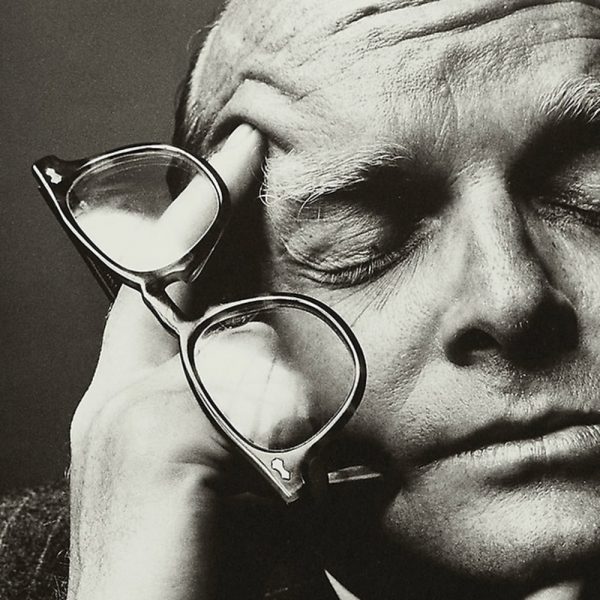
Given the crushing weight of these issues, Capote appeared to be losing interest in writing. When asked about his slow progress on Answered Prayers, he described the book as “my posthumous novel … either I will kill it, or it will kill me.” Instead, Truman seemed more preoccupied with cultivating celebrity, both for himself and in his relationships. In 1966, for example, he staged his legendary Black and White Ball at New York’s Plaza Hotel, a spectacle of celebrities that drew approximately 540 guests. He also made many appearances on TV talk shows and even took a stab at screen acting in the Neil Simon comedy “Murder by Death” (1976).
Eventually, however, Capote managed to resume work on the book, several advance chapters of which were published in Esquire magazine in 1975 and 1976. Much to his surprise, however, the reception was not what was expected. While he often insisted that Answered Prayers was merely a work of fiction, he also openly admitted during a talk show interview that it wasn’t. The detailed descriptions of incidents involving his friends were too thinly veiled to not be identified for what they really were. He naïvely thought he could simply change the names of the characters and nobody would recognize who he was talking about.
In the published excerpts, Capote revealed unspeakably horrible and shocking details about the deepest, darkest secrets of very high-profile individuals through the supposedly fictional adventures of characters who were obviously based on his friends. For instance, he wrote a segment about a woman who was apparently patterned after New York socialite Ann Woodward, contending that the character had had her wealthy, old money husband killed, a fate not unlike what befell Woodward herself. Similarly, he wrote about a philandering character allegedly based on CBS Chairman Bill Paley, who had an affair during which he experienced an embarrassing incident of attempting to have sex with a woman while she was on her period.
Because of such accounts, Capote’s friends walked away in droves. According to Kate Harrington, Truman shocked and hurt his friends in two ways – first by revealing the precise nature of their dirty little secrets and then by betraying the confidences he supposedly placed in those friendships. For his part, Capote had difficulty believing that his familiars would react as they did. In fact, prior to the excerpts’ publication, he even boastfully proclaimed that “No one’s going to be upset with me [about the book] unless they’re left out.” So much for underestimating one’s friends.
This failed effort cost Capote a lot. He lost many of his friends. His relationship was severely strained. His health began failing quickly. And he never wrote another book. In fact, it’s unclear whether he even completed Answered Prayers (or had any intention to do so). Consequently, a full novel was never available for publication, despite the project’s many, many years of development. It’s a project that author Jay McInerney speculated could qualify it as one of the all-time greatest literary hoaxes.
Capote died in 1984. But, considering what he lost prior to that time, one could say he died well before that. A series of poor choices led to his downfall, and, as they unfolded, they spawned many problems that he sadly didn’t anticipate.
This illustrates what can happen when we embrace questionable beliefs, and that’s important in light of the role our thoughts, beliefs and intents play in shaping the nature of our existence. This is the end product of the conscious creation process, the philosophy that maintains we draw on the power of these intangible resources in manifesting the reality we experience. It’s unclear whether Capote ever heard of this school of thought, but it’s apparent that it had considerable impact on his life, both for better and worse.
One of my favorite Old World expressions offers up a simple but important piece of advice: “Don’t shit where you eat.” As this axiom maintains, we can set ourselves up for real trouble when we chart a perilous course, especially one that’s foolishly embarked upon intentionally. Our beliefs are powerful tools in materializing what shows up in our existence, and, when we wield them recklessly, problems often await us, which is what happened to Truman.
One need only look to Truman’s life experience to see where some of his problematic beliefs originated. For example, even though Truman had become famous as a prominent fixture in New York high society, he was never truly accepted in the way he thought he was or wanted to be, and, on some level, he may have suspected this, even if it wasn’t consciously acknowledged. As a number of the film’s archived and contemporary interviews reveal, he was treated like a court jester. According to his friend and swan Slim Keith, Truman was liked for being “a freak,” a curiosity, but not as someone New York high society sincerely embraced as one of its own. According to John Richardson, Capote was “expected to perform,” with Harrington characterizing him as being “the entertainment.” Capote also often played the role of “walker,” an escort for high society women when they attended events unaccompanied, a role frequently assumed by gay men. Truman willingly did this for the access it provided, despite the fact that it came to be seen as a role in which he essentially was “a servant” for the wealthy.
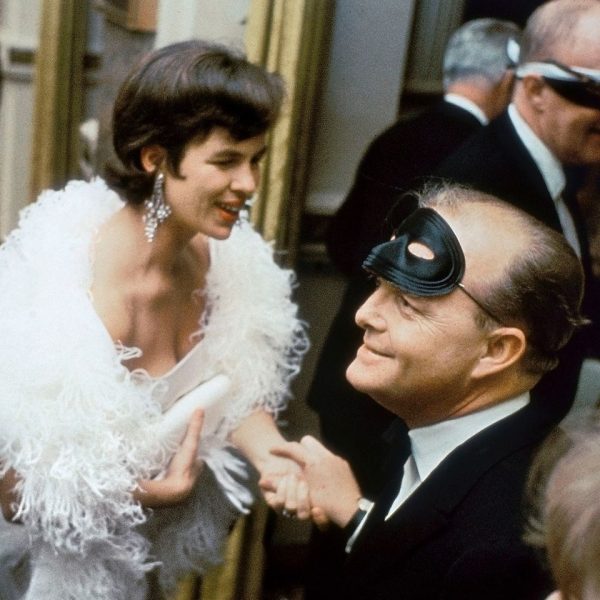
One could argue that Capote came to believe, at least subconsciously, that he was being used and that he felt the need to get back at those who took advantage of him. And this, in part, could have been his motivation for writing Answered Prayers. But one also can’t help but ask, “Is retribution a wise course?” Based on how events unfolded here, it’s obviously something that could have used some more reasoned assessment before acting, especially in light of the connection between actions and consequences.
As became apparent as far back as his childhood, Capote was fascinated with the lives of others. He playfully enjoyed swapping overheard stories, and, over time, he made a ritual of starting his days by trading juicy tidbits with gossip columnists. But there’s a big difference between impishly exchanging tasty little morsels with fellows and seeking to capitalize on that information for personal gain or vengeful payback. Indeed, as Truman boldly proclaims in an interview included in the film, “These people are my material.” And, considering how he used that material, he made himself a target for the same kind of retribution he was dishing out.
Moreover, given Truman’s stormy upbringing, the search for love and acceptance was a priority for him throughout his life. His belief in this need was obvious and sincere. But, considering the way he went about seeking its fulfillment, he seemed to pursue it at all costs and without regard for the consequences, a practice known as un-conscious creation or creation by default. This practice would help to explain his sexual promiscuity, for instance, especially later in life, when his relationship with Jack Dunphy began to slide. It might also shed light on Truman’s infatuation with Perry Smith, a desperate romantic longing for someone who is inherently unavailable.
Un-conscious creation would also help to account for the retribution theme that characterized some of Truman’s personal motivations. For example, Holly Golightly, the protagonist of Breakfast at Tiffany’s, a “café society girl” who “escorted” wealthy men in exchange for various forms of remuneration, was said to have been based largely on Truman’s mother, who abandoned him to pursue her own interests when he was still a toddler. Can one imagine a greater betrayal than that when it comes to the need for pursuing absent love and acceptance? And is it any surprise that it might subsequently come to be a source of intentional reprisal for someone who lived through such circumstances? If that’s indeed the case, then, it’s easy to see how such a characterization might arise – and how a project like Answered Prayers could be viewed as an extension of that same thinking, only writ much, much larger.
Capote’s plan to undertake Answered Prayers makes clear another belief-related problem – embracing delusional, unrealistic notions. There is a distinct difference between visionary ideas and wishful thinking, and, in many ways, Truman followed the latter when it came to this book. That’s apparent in his belief that the subjects who served as sources of inspiration for this novel would unquestionably see it as fiction, that any similarities between them and his characters would be dismissively overlooked or, even more outlandishly, that they’d be flattered to be included in the book. As friend Slim Keith succinctly put it, “He was a shit stirrer.” Indeed, how utterly naïve can one be?
What’s more, Capote had overly idealistic expectations for what this book would be. He saw it as a masterpiece in the making, a work that he placed on par with writings of the likes of French novelist Marcel Proust (1871-1922). Like playwright and satirist Oscar Wilde, Capote was full of himself in this regard, holding an obviously inflated opinion of the work in progress. And, when he premiered portions of the draft in readings to close friends, they often burst his bubble, calling the work “shallow.” But, when it comes to writing that amounts to little more than “fictionalized” accounts of gossip, should he have really been surprised by so honest an assessment?
Clearly there was a need for better discernment here. However, given the circles that Capote traveled in, that capability may have very well become lost, making it difficult to employ it objectively or judiciously. That green-lighted his unrealistic beliefs, actions and expectations, and, sadly, they didn’t pan out as hoped for, falling prey to a host of unexpected, unintended and unwanted side effects that cost Truman virtually everything. So much for prayers being answered.
“The Capote Tapes” presents a captivating look at a talented, troubled and towering figure. It incorporates a wealth of insightful observations and captivating archive material, providing us with a compelling look at a different world and a different time. It also delivers a potent caution that we should all heed when it comes to the projects we undertake and the implications they can carry. After all, given that none of us wants to be a source of shadowy whispering for our failings (especially our most embarrassing ones), it shouldn’t take much to see where the protagonist here went wrong if we’re to avoid a similar fate. Keeping our own noses clean is always advisable, but that doesn’t give us license to point out the shortcomings of others, either. The film is playing in limited theatrical release and is available for streaming online.
It should be noted that this offering is not to be confused with “Truman & Tennessee,” another film about Capote released earlier this year. That documentary examines the life and work of the author, as well as his long-term friendship with fellow writer Tennessee Williams. “Truman & Tennessee” does not delve into the Answered Prayers story to any great length, thus providing a wholly different, and considerably more flattering, look at this iconic artist.
Ideally, we’d all like to hope that we should be able to walk away from a cautionary tale like this fully aware of the kinds of mistakes to avoid. But will such a lesson truly sink in? That ultimately depends on the beliefs we each hold. If we recognize the wayward example set here and embrace notions designed to counteract such misguided pursuits, we should be fine. However, if we stubbornly cling to ideas that stem from wishful thinking or clouded judgment, we could saddle ourselves with burdens not unlike those Capote experienced, and no amount of prayer would likely be sufficient enough to extricate ourselves from such circumstances. Relying on a rosary to get ourselves out of a jam may not be nearly as effective as simply learning how to prevent such fiascos in the first place.
Copyright © 2020-2021, by Brent Marchant. All rights reserved.
With the film festival and movie awards season in full swing, it's time to find out what's worth seeing (and worth skipping) on the next edition of The Good Media Network’s Frankiesense & More video podcast with yours truly and special guest host Danielle Findlay. Tune in Thursday October 28 at 1 pm ET on Facebook Live for a lively discussion of releases worth seeing in theaters, via streaming and at film festivals. And, if you don’t see the show live, catch it later on demand!

The Chicago International Film Festival recently completed its 2021 edition in its first-ever hybrid format with theatrical, virtual and drive-in screening options. This flexible approach made it possible for viewers to screen a variety of films in the traditional manner, from the comfort of their own homes or stretched out in their cars. While some of the presentations were available in Illinois only, both theatrically and virtually, many others could be streamed nationwide, making it possible for movie fans to see some excellent films without being in the Windy City, an increasingly popular viewing option for many film festivals (and one that I heartily applaud).
Thanks to this new format, I was able to screen a great number of films – 22 in all. The festival’s 57th edition had its share of fine offerings, but there were also a number of pictures that could have been better. Below are my summary reviews of the releases I watched. Full reviews of select films are to come, where noted.

“Amira” (Egypt/Jordan/UAE/Saudi Arabia) (5/5)
What makes us who we are – our personal character or our immutable DNA? That’s the central question raised in this domestic drama with a sociopolitical twist. When Amira (Tara Abboud), a 17-year-old Palestinian girl conceived with the smuggled semen of her imprisoned father (Ali Suliman) (an opposition political leader confined by the Israelis), discovers that the man she has always thought of as her dad is not her biological parent, the revelation creates chaos within her immediate and extended family, as well as among his unincarcerated political allies (Waleed Zuaiter, Ziad Bakri). This becomes most apparent in her search to uncover her true lineage, a process hampered by her uncooperative mother (Saba Mubarak), who thwarts Amira’s efforts at every turn. Writer-director Mohamed Diab’s latest has been unfairly labeled a soap opera and a manipulative melodrama, but these flimsy criticisms ignore the profound impact of this clandestine practice, one that has been playing out for nearly a decade and has implications extending beyond immediate family units. While it’s true that the somewhat overlong final act is at times a bit overdramatic and occasionally unduly dogmatic, the filmmaker’s sincerity in attempting to portray circumstances that go beyond mere private domestic matters is indeed commendable. All of this is made possible by the fine performances of Abboud, Suliman and Mubarak as the once-happy family members whose lives are suddenly and unexpectedly thrown into turmoil. Pay no attention to the cynical critics about this one; it’s a fine, engaging effort well worth the viewing time. Full review to come.
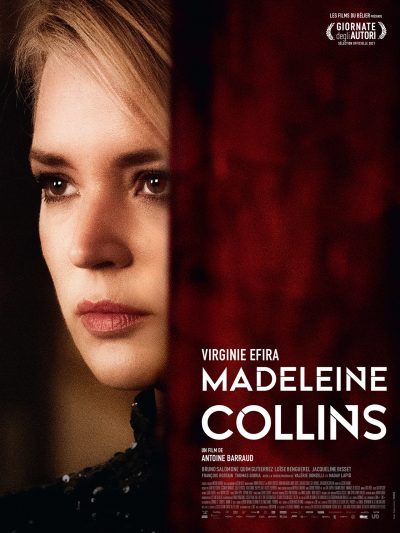
“Madeleine Collins” (France/Belgium/Switzerland) (5/5)
Sustaining suspense and keeping viewers guessing for nearly two hours is quite a feat, but writer-director Antoine Barraud successfully manages to do just that in his latest release, a seamless blend of two genres – psychological thriller and romantic drama. With a number of homages to Hitchcock, as well as many mind-bending tricks of his own, Barraud’s tale of a woman (Virginie Efira) leading two lives – one in Paris and one in Switzerland – dangles an array of intriguing clues before his audience and always manages to confound even the most astute viewers with a parade of new revelations in seemingly every scene. However, despite the narrative’s many misdirections, the story never becomes so confusing or convoluted that it can’t be followed. Instead, the film breeds a succession of delicious “a ha!” moments, maintaining interest as the story slides into a satisfying home stretch. Credit Efira for shouldering the load here, delivering a riveting performance and making it look effortless. Indeed, if this movie were a book, it would be a real page-turner from start to finish. Don’t miss this one.
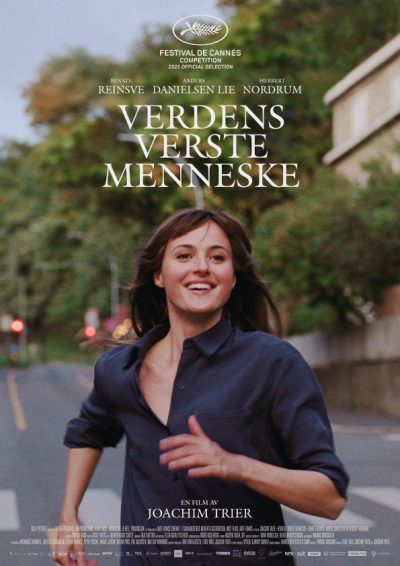
“The Worst Person in the World” (“Verdens verste menneske”) (Norway/France/Sweden/Denmark) (5/5)
When we don’t know what we want out of life, we may appear to others as fickle, capricious or self-centered, especially if we’re not afraid to admit to such uncertainty. And that, needless to say, doesn’t always bode well for our reputation with others. But is this kind of self-acknowledged indecisiveness truly a character failing, perhaps even a symptom of unacknowledged narcissism? That’s what the protagonist (Renate Reinsve) of this insightful, superbly written Norwegian comedy/drama/character study is up against, a scenario in which the film’s principal could easily be characterized as the embodiment of the picture’s title. However, as this offering also shows, it’s possible to say that there just might be a little of the worst person in the world in all of us, an observation that should give us pause to consider how we not only see others but also ourselves. Writer-director Joachim Trier’s latest thus illustrates how the journey of self-discovery is not an easy one, a process that we should be careful to judge, especially when we realize that the bottom line in this is something to which we might all fall prey, mainly because we’re all ultimately only human. The sparklingly crisp screenplay, expertly blended palette of filming styles and stunning lead performance of Reinsve (winner of the best actress award at this year’s Cannes Film Festival) combine to make a thoroughly enjoyable and thoughtful movie-going experience not to be missed. This definitely deserves a general release, and, should that happen, avid cinephiles should rush and go see it. Handily my favorite film of the festival. Silver Hugo Award winner, Best Cinematography. Full review to come.
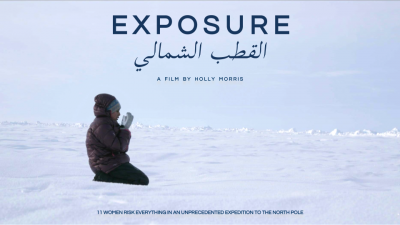
“Exposure” (USA/Iceland/Oman/Saudi Arabia) (4/5)
Reaching the top of the world is far from an easy task, even under the best of conditions. But, in an era of climate change, in which the warming of the planet is causing the ice that must be traversed to reach the North Pole, that undertaking has become eminently more perilous. Director Holly Morris’s excellent, up-close documentary chronicles the 2018 adventures of an all-female expedition crew, detailing the challenges and dangers involved in such an inherently risky venture. This project, aimed at helping to draw attention to environmental issues and the possibilities afforded by women’s empowerment initiatives, is a historic one also in that it could well be the last of its kind due to the increasing dangers posed by such journeys. The film’s stunning cinematography and its highly personal treatment of the crew members’ individual stories makes this an intriguing and compelling watch about one of the planet’s last-remaining – and potentially fastest-disappearing – frontiers.

“The Gravedigger’s Wife” (“Guled and Nasra”) (France/Somalia/Germany/Finland/Qatar) (4/5)
What lengths would you go to for the one you love? That’s the core question in this multinational production about a Djibouti gravedigger (Omar Abdi) who barely ekes out a living and is now faced with coming up with the money to pay for a life-saving operation for his dying wife (Yasmin Warsame). This heartrending and heartbreaking tale has its predictable moments and a few story threads that aren’t as fully developed as they could have been, but the superb chemistry between the protagonists, enlivened by the excellent performances of Abdi and Warsame, make this an engaging and compelling watch overall. Writer-director Khadar Ahmed’s debut feature is a fine showcase for a superb emerging talent, one who shows tremendous promise for future projects. Full review to come.
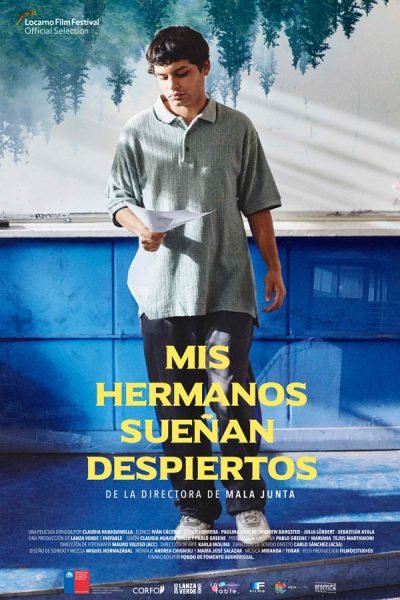
“My Brothers Dream Awake” (“Mis hermanos sueñan despiertos”) (Chile) (4/5)
When two teenage brothers (Claudio Arredondo, Sebastián Ayala) are confined in a Chilean provincial juvenile detention center, they dream of life outside their prison walls, although they have no idea when they’ll have the opportunity to experience it. Despite being charged with only petty offenses, they have no legal guardian to claim them, their mother having abandoned them upon lockup. With the days passing, the tedium growing ever-more exasperating and the stress mounting (particularly for the younger, more sensitive sibling), the brothers become progressively more frustrated – and desperate – to find a way to rejoin the world of the living. So, when an opportunity opens up to make that happen with their cell mates, they avail themselves of the chance, despite the risky nature of the plan. Based on conditions that once existed at one such facility, as well director Claudia Huaiquimilla’s experience working with at-risk youth, this sensitive, affecting drama puts viewers into the shoes of these troubled young men and women, many of whom didn’t catch any breaks before incarceration let alone once in confinement. Because the film touches on so many different aspects of juvenile detention life, it occasionally suffers from bouts of meandering and underdevelopment. But this is made up for by a fine ensemble cast, beautiful cinematography and a riveting concluding sequence that will leave viewers glued to their seats. The filmmaker’s sophomore effort isn’t always an easy watch, but it nevertheless makes a powerful and profound statement that bears heeding, no matter where one calls home.
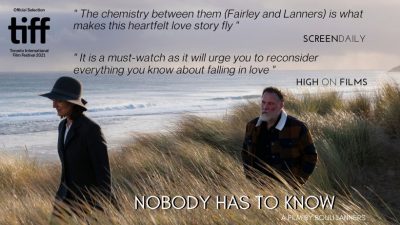
“Nobody Has to Know” (France/Belgium/UK) (4/5)
What if you were to lose your memory and then have an apparent stranger come up to you and say that the two of you were once lovers? Would you believe it? And what would you do? That’s the challenge for a stroke survivor (Bouli Lanners) who learns that his caregiver (Michelle Fairley) was once supposedly a love interest. It’s not as if he’s opposed to the idea of picking up where they supposedly left off, but he nevertheless remembers nothing of his involvement with her. Thus begins the start of an unusual relationship that he clearly enjoys despite the seemingly omnipresent nervousness she appears to exude. Is everything above board here? Or is something else going on, and how will that bode for their future? Writer-actor-director Lanners has concocted quite an engaging story in this film, successfully brought to life by his fine performance and that of co-star Fairley, both of whom captured CIFF Silver Hugo Awards for their portrayals. Admittedly, a few story elements don’t integrate into the overall narrative as well as they could have, but the picture’s gorgeous cinematography provides an excellent distraction to these modest drawbacks. As one of the most unusual love stories I have ever seen, this offering generally lives up to its potential and gives the heartstrings a good tug in the process. Silver Hugo Award winner, Best Actor (Bouli Lanners); Silver Hugo Award winner, Best Actress (Michelle Fairley).

“Skál” (“Cheers”) (Faroe Islands/Denmark) (4/5)
Though billed as a documentary, this captivating release plays more like a docu-drama or even a big screen version of reality TV. The film tells a modern-day Romeo and Juliet story of sorts about Dania, a young, idea-filled poet from a conservative Christian community who falls for an outspoken, outlandish rap artist, Trygvi, whose shock-provoking lyrics are the antithesis of the values his long-sheltered girlfriend was raised with. Despite their differences and the pressure inflicted upon them through less-than-subtle parental misgivings, the couple steadily grows ever closer, especially as Dania becomes more comfortable in poetically expressing her conflicted feelings about genuine faith and the pitfalls of needlessly restrictive religious conventions. Directors Cecilie Debell and Maria Tórgarð thus present an honest love story with deep spiritual implications, narrative elements often lacking in similar offerings. The film’s truly breathtaking cinematography is a sight to behold, showing off the beauty of the Faroe Islands in ways seldom seen, combined with heartfelt, intimate depictions of personal moments, making for an unusual blend seldom seen in many movies, let alone those in the documentary genre. My only problem with this release is that so many of the most significant moments seem so perfectly captured that it almost makes me wonder about the validity of their authenticity, that they play more like scripted material than spontaneously caught events. That aside, though, this thoughtful, insightful release provides viewers with much to ponder, backed by gorgeous images and presented through a bevy of touching moments. What more could audiences ask for? Gold Hugo Award winner, International Documentary Competition. Full review to come.
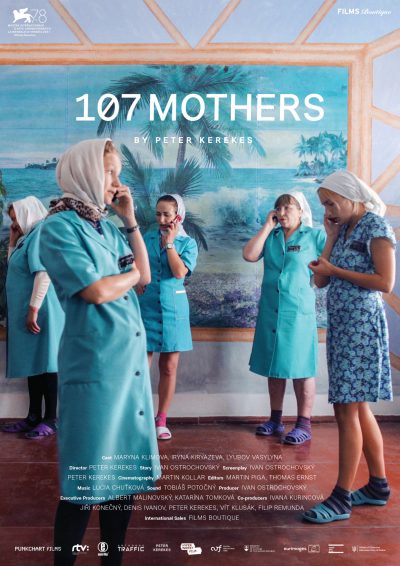
“107 Mothers” (“Cenzorka”) (Slovakia/Czech Republic/Ukraine) (3/5)
Raising a child as a single parent can be challenging enough in itself, but imagine trying to do so as a mother in prison. The harsh, regimented, bureaucratic conditions of this environment are challenging for all concerned – mothers, children, and even the staff of guards and professional caregivers, some of whom long to be parents but aren’t as “fortunate” as the inmates they oversee. Of course, one also needs to remember that these women are here for a reason, many of whom have been convicted of crimes as heinous as brutally murdering their unfaithful husbands and boyfriends. Such are the circumstances faced by a group of women incarcerated in a Ukrainian detention facility in this fact-based drama about what it’s like to undergo imprisonment while raising young ones. The inmates are forced to deal with considerations as daunting as the reality of their sentences, the guilt and psychological impact of their crimes (despite being the perpetrators themselves), and enduring separation from their children, something they could face permanently if they cannot find guardians to care for their little ones once they reach a certain age. Director Péter Kerekes’s third narrative feature is to be commended for taking on such a sensitive subject, its efforts at addressing an array of issues associated with such circumstances and doing so with an often-experimental approach. However, the film attempts to cover so much ground that it occasionally becomes somewhat unfocused (particularly in the first half), leaving viewers to wonder exactly where the picture is headed. To its credit, though, there are also some powerfully moving sequences that drive home the true pain associated with these conditions, situations that can’t help but evoke genuine empathy, even among the least sympathetic of viewers. A noble effort with much potential, even if it isn’t always fully realized. Silver Hugo Award winner, Best Director (Péter Kerekes).
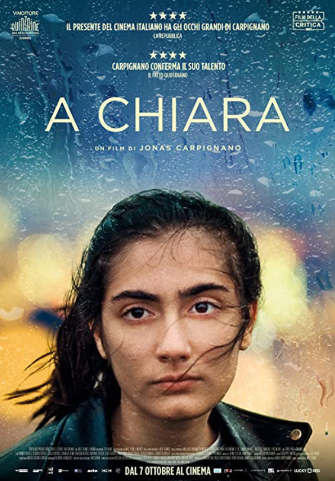
“A Chiara” (Italy/France) (3/5)
Finding out your family isn’t what you thought it was can be a personally devastating blow, especially for an impressionable adolescent. So it is for 15-year-old Chiara (Swamy Rotolo), who has long innocently believed that her home life is a bona fide 24/7 Kodak moment. But, when she witnesses a shocking incident and begins learning startling secrets about her Italian mob member father (Claudio Rotolo), she indignantly demands answers, most notably from her apparently better-informed relatives (Grecia Rotolo, Carmela Fumo, Antonio Rotolo Uno). However, none of her kindreds will respond to her questions, particularly when dad goes missing as a fugitive. How will she resolve these issues to her satisfaction? That’s what writer-director Jonas Carpignano examines in his latest feature film, a crime saga mixed with domestic drama elements told from the perspective of an insatiably inquisitive teenager. As unique as the narrative may be, though, this offering could definitely benefit from better editing (especially in the first half-hour), more plausible plot elements (particularly in the concluding act) and a more compelling coda to replace an ending that currently fizzles more than it dazzles. This could have been a fine release with some retooling, but, in its present form, it needs more salt.
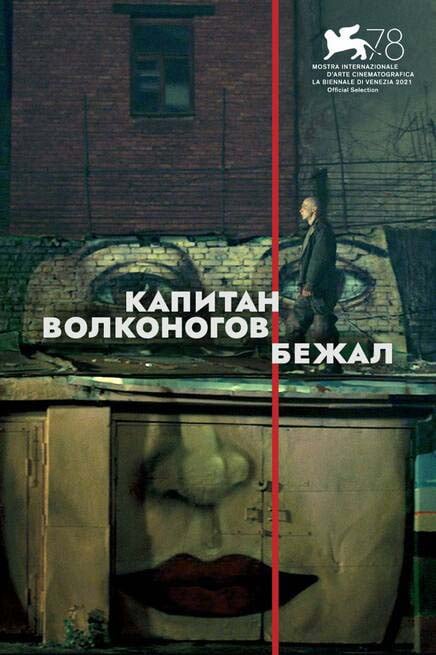
“Captain Volkonogov Escaped” (“Kapitan Volonogov bezhal”) (Russia/France/Estonia) (3/5)
What does it take to attain forgiveness? That’s what a secret police operative (Yuriy Borisov) in pre-World War II Leningrad seeks when he realizes he’s been unwittingly involved in a program of rounding up and executing innocent civilians whom officials believe are possible threats based merely on their occupations, friendships, relatives and ethnicities. That revelation prompts him to take flight, especially when higher-ups begin to suspect that he’s no longer trustworthy. While on the run, his hope for redemption surfaces when he experiences a visitation from a deceased former associate who informs the agent that he’ll be damned to hell – just like all of his other late colleagues – unless he’s able to repent his transgressions and obtain forgiveness from at least one of his victims’ relatives. Armed with that information, the officer sets off on a quest to find someone who will forgive him, all while being hunted down by authorities who now consider the renegade agent a threat in his own right. In telling the captain’s story, directors Aleksey Chupov and Natasha Merkulova present a thoughtful Russian fable/morality play, one that mixes hard-edged reality with surrealism, metaphor and a surprising degree of spirituality in an era of godless Communism. It’s an intriguing, thought-provoking premise embedded in a game of cat and mouse, one whose elements sometimes come across as insightful and enlightening with others that seem surprisingly simplistic, almost naïve. Nevertheless, these shortcomings are compensated for by the intense lead performance of Borisov, the film’s superb cinematography and its brilliant dystopian production design. While not everything works in this unusual, genre-fusing offering, there’s enough to like here to make for an engaging, ponderous and mesmerizing time at the movies. Silver Hugo Award winner, Best Art Direction.
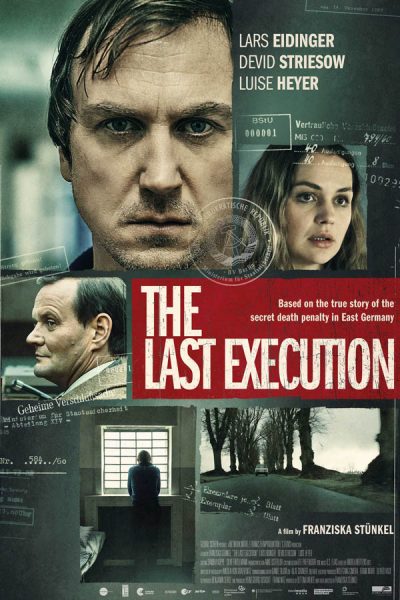
“The Last Execution” (“Nahschuss”) (Germany) (3/5)
Inspired by the life of Werner Teske, the last person executed in East Germany before the death penalty was abolished, this fictionalized account of his story follows the tragic experience of an ambitious but idealistic and naïve scientist/professor (Lars Eidinger) who sacrifices his integrity for the prospect of upward mobility when recruited to work for the Ministry for State Security (Stasi). Having landed a position of enviable comfort by East German standards, the devoted recruit initially complies with what’s asked of him. However, when he’s coerced into activities that he finds personally troubling, he has difficulty following orders, putting him under mounting pressure and enhanced scrutiny as he’s soon railroaded by his own agency. While director Franziska Stünkel’s second narrative feature starts off well as a finely crafted espionage thriller, it begins running out of steam as it switches tracks to explore the psychological aspects of its story, becoming increasingly plodding and riddled with extraneous sequences that could have easily been cut. It’s unfortunate that the intensity with which the film begins isn’t sustained when the protagonist wrestles with his crisis of conscience, a narrative development that one would think would have had the same sizzle potential as what preceded it. There are also plot elements that occasionally stretch credibility, particularly when it comes to the protagonist’s naïvete. As it stands, viewers are left with a film that works well some – but regrettably not all – of the time.
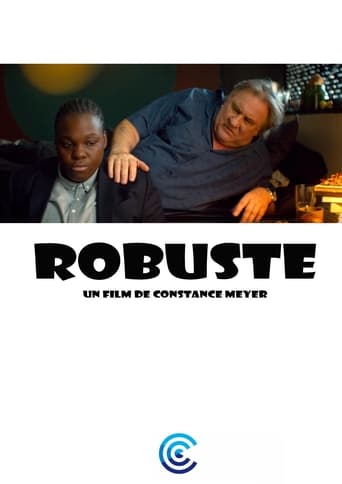
“Robust” (“Robuste”) (France) (3/5)
Web site
When an aging, eccentric, cantankerous actor (Gérard Depardieu) with health issues and a host of insecurities loses his body guard to several weeks’ personal leave, he’s flummoxed by the arrival of his replacement – a young female amateur wrestler (Déborah Lukumuena) who doubles as his protector. Much to his surprise, however, he quickly forms a strong friendship with his new security agent/personal assistant, one that proves mutually beneficial as he helps to bolster her career as she helps to get his career back on track. While the narrative is somewhat predictable at times, there are ample curve balls thrown our way, too, making for a generally delightful movie experience. This gentle comedy’s greatest strengths, though, are the fine performances by Depardieu and Lukumuena, as well as the strong, credible chemistry between the unlikely duo. While some story threads aren’t developed or resolved as well as they might have been, director Constance Meyer’s debut feature is nevertheless an impressive start to what one would hope is a flourishing career.
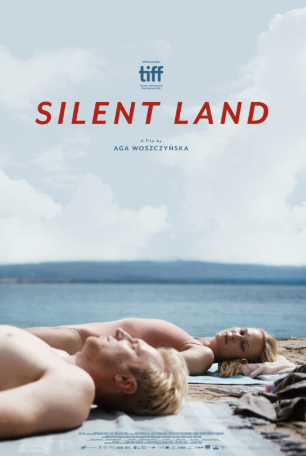
“Silent Land” (“Cicha ziemia”) (Poland/Italy/Czech Republic) (3/5)
Web site, Trailer
When an accident at an Italian rental villa results in the death of a maintenance worker (Ibrahim Keshk), the incident sets off an array of moral and relationship dilemmas for the wealthy Polish couple (Dobromir Dymecki, Agnieszka Zulewski) renting the estate for what becomes a tension-filled holiday. While the accident itself raises questions related to accountability, the film slowly and simultaneously also reveals that issues of personal responsibility extend further than just what happened on the property. This is apparent most notably in terms of what’s going on in the disintegrating relationship of the protagonists, issues that also parallel those of a local couple (Jean-Marc Barr, Alma Jodorowsky) whom they befriend. In relating this story, director Aga Woszczyńska’s debut feature subtly draws comparisons between the underlying meaning of the accident and the circumstances in the protagonists’ relationship, particularly when it comes to the responsibility we all carry with us with regard to what we contribute to the unfolding of such matters. However, while the film effectively builds suspense initially as it moves toward this central revelation, it eventually reaches a point where the narrative starts to meander in too many different directions, some of which could have been easily eliminated. Also, one can’t help but observe that, as the filmmaker’s intent comes into focus, it feels somewhat contrived – clever and insightful yet a little too deliberately planned for its own good. The result is an ultimately less-than-satisfying outcome, one that doesn’t quite match the intensely slow sizzle this drama/character study started with. Director Woszczyńska shows some promise with this first outing, but it’s clear she could stand to learn from a few more film projects as she moves toward living up to her potential.
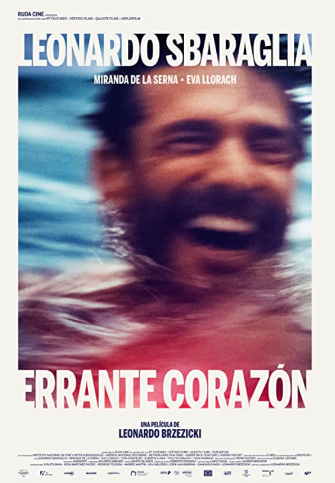
“Wandering Heart” (“Errante corazón”) (Argentina/Brazil/Spain/Chile/Netherlands) (3/5)
Abandonment is a difficult issue whether one is on the receiving end or doing the deserting. Such is the experience of a middle-aged gay man (Leonardo Sbaraglia) who has been on both ends of this burning candle. It seems like he’s either leaving the ones he cares about or those whom he adores are leaving him, and it’s beginning to take an emotional toll on him. The same is true to an extent for those around him, most notably his daughter (Miranda de la Serna), a recent high school graduate, and his ex-wife (Eva Llorach), an entertainer who has trouble keeping centered. In each case, the characters are wrestling with their restless wandering hearts. But is that wandering being driven by an inability to commit or by fear, particularly the anxiety associated with being alone? Those are the questions the characters must deal with if they ever hope to hold on to their sanity, let alone be happy. In an age when feelings of isolation are becoming more prevalent, those are certainly important considerations to address. However, writer-director Leonardo Brzezicki’s handling of this issue leaves much to be desired. The characters’ behavior (most notably that of the protagonist) often lacks believability, presented as exercises in immaturity that truly stretch credibility. Then there’s a noticeable lack of specificity in the back story; its vague explanations never feel complete or satisfactory. And then there are the performances, which bring new meaning to the term “drama queen” on more than a few occasions. Finally, the forced feel-good attitude that emerges in the final act seems wholly out of place in light of what precedes it, cheapening the overall narrative. Still, to the film’s credit, it does take on a subject that’s seldom dealt with in movies, and there’s something to be said for that; it’s just a shame it wasn’t better handled.
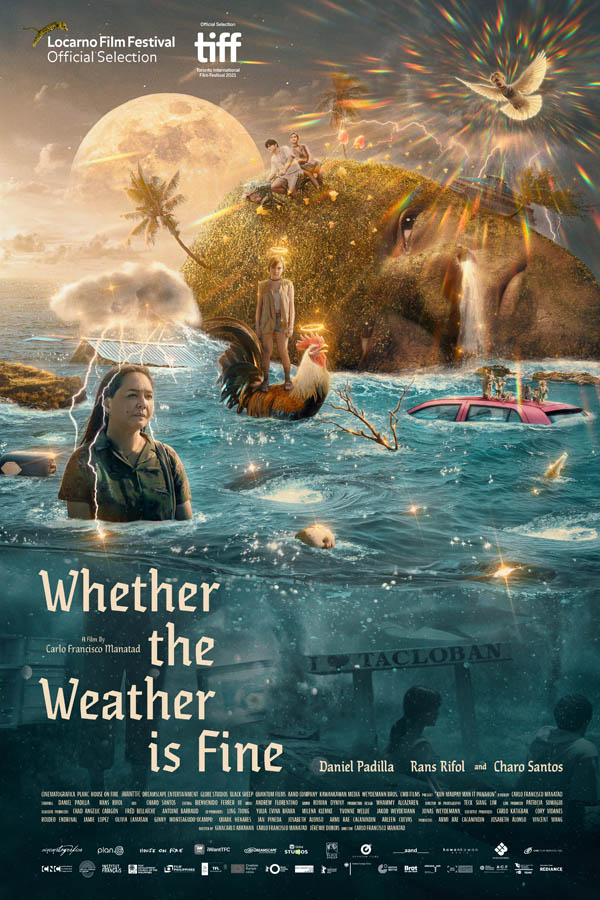
“Whether the Weather Is Fine” (“Kun Maupay Man It Parahon”) (Philippines/France/Singapore/Indonesia/Germany/Qatar) (3/5)
In a landscape strewn with debris, dead bodies, unattended farm animals and packs of out-of-control children, three survivors (Daniel Padilla, Rans Rifol, Charo Santos-Concio) of 2013’s Philippine Typhoon Haiyan wander what’s left of the streets of the City of Tacloban. Unsure about what to do, where to go and what the future may hold, they look for ways to survive. At the same time, though, they also wonder how something as horrific as this could happen, especially in a nation where devout faith in Christianity permeates the culture. In their wanderings, they find individuals devastated by their circumstances. But they also discover those who firmly believe that the strength of their faith will somehow miraculously sustain them, including through the acts and deeds of selfless Samaritans, some of whom seem unlikely candidates for such altruistic behavior. The result is a ponderous journey with elements that fuse gritty realism with wondrous surrealism. Director Carlo Francisco Manatad’s debut narrative feature is to be commended for its inventive perspective on such a troubling subject, one that’s characterized by scenes depicting such images as children gleefully playing in the shadows of unburied corpses. But the upshot of this is that it is possible to have hope in the face of despair, especially when miracles indeed happen. Admittedly the film could use some judicious editing at times, and there are some elements (such as the surprisingly upbeat score) that seem strangely out of place. However, the underlying message here is one that should not be summarily dismissed. After all, without hope, under trying conditions, what else have we got?
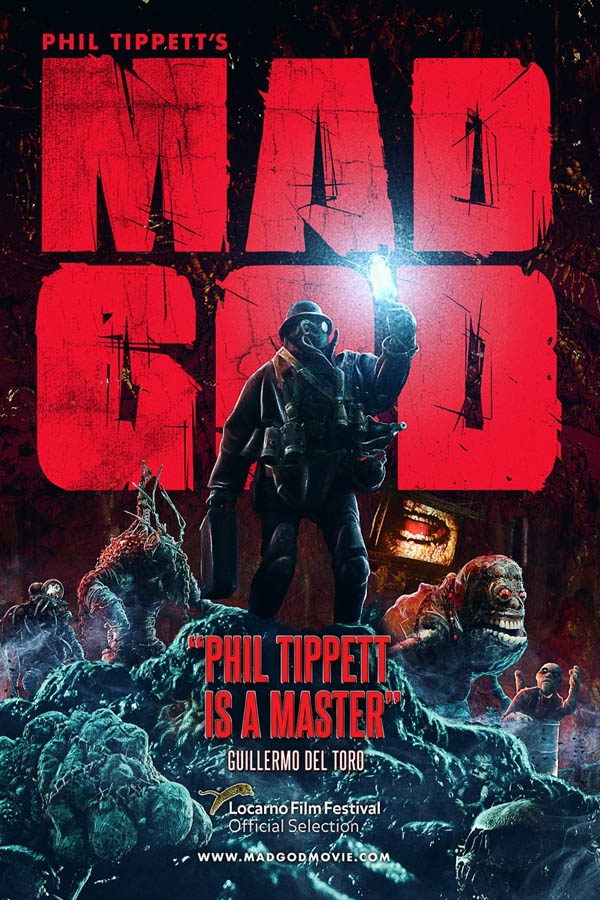
“Mad God” (USA) (2/5)
Ah, vanity. How lucky one is to have attained such notoriety for one’s work that one can then devote all one’s energies to a pet project that’s not necessarily meant to make money or win critical praise but to merely satisfy one’s own creative urges – especially those that are so far removed from the standards of conventionality that one couldn’t care less. That could be one way of summing up the essence of this stop-motion animation offering from director/special effects master Phil Tippett, best known for his work on films like “Jurassic Park,” “The Empire Strikes Back,” “Starship Troopers,” “Indiana Jones and the Temple of Doom” and the original “RoboCop” series. This wildly imaginative, superbly produced, sometimes-funny, supremely decadent dark fantasy easily boasts some of the best and most elaborate stop-motion animation sequences ever created, even if they are also some of the most gratuitously and grotesquely disturbing ones ever made. While the imagery may be a feast for the eyes (though I wouldn’t recommend eating a meal while screening it), the nonlinear nature of the narrative grows progressively more tiresome the further one gets into it. Consequently, my rating here is indeed a generous one, primarily in recognition of the picture’s tremendous technical accomplishments, which were 30+ years in the making. However, although this work may succeed as a cinematic art piece with more than a few allusions to “God as mad scientist,” there’s little else to recommend in terms of what it has to offer as a motion (or, in this case, stop-motion) picture. But, then, when satisfying one’s own vanity is the main objective, as on a project like this, I suppose that’s all that really matters in the end, even if no one else shares in that vision – or enjoyment.
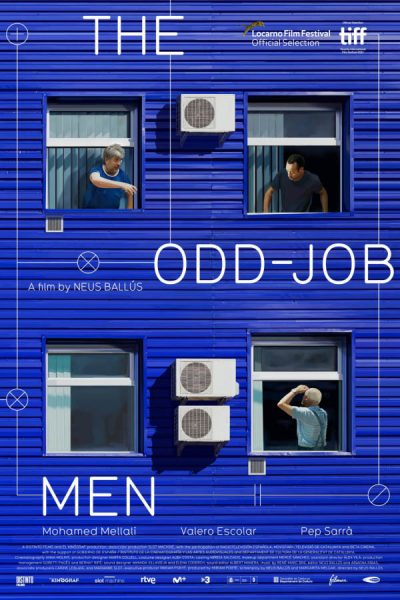
“The Odd-Job Men” (“Sis dies corrents”) (Spain) (2/5)
Though billed as a comedy, one would be hard-pressed to think so given the finished product. Despite a well-crafted production design and a simple but potentially engaging premise of this Spanish offering – that of a week in the transitioning lives of three handymen (Pep Sarrà, Valero Escolar, Mohamed Mellali) who work for a small maintenance and repair company in suburban Barcelona – the film never gels into what it could have been, resulting in a largely uninteresting, insubstantial snooze where viewers are left waiting for punchlines that never materialize. It’s not that the characters aren’t well drawn; they’re just not given much to do, and almost none of it generates the laughs one expects from its billing. Director Neus Ballús’s latest plays like the first draft of a script in need of serious shoring up (most notably some heavy dustings of laughing powder), despite originating in what could have been a rich vein of worthy material if suitably developed. Instead, viewers are left with a picture where it feels like the filmmaker could have done so much more with it but didn’t.
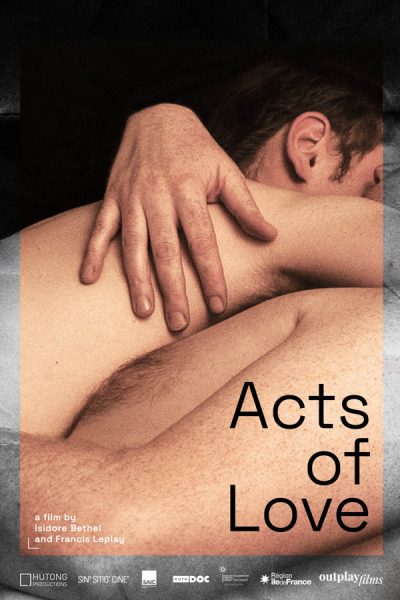
“Acts of Love” (USA/France) (1/5)
When director Isidore Bethel’s relationship with an older man sours, he takes a break from things and relocates from Mexico City to Chicago to make a film that, from the very beginning of the production, has no apparent sense of direction. It’s a trait more than amply apparent in the finished product, too. And, as revealed in recorded phone conversations during the course of the picture, the filmmaker’s mother absolutely hates it (and astutely so). This meandering stream of consciousness “documentary” consists mostly of director interviews and encounters with people off the street regarding matters of sex, love, intimacy and relationships, backed by musings of cluelessness and ennui, all linked by Mike Mills-styled bridge sequences. In the end, however, the picture essentially ends up being little more than a vehicle for potential hook-ups involving the filmmaker. There’s plenty of masturbation going on here, too, both of the intellectual kind and otherwise. Sadly, this is yet another example of pretentious, unfocused material erroneously being passed off as alleged high art. Thankfully, Mom sees through it all and doesn’t hesitate to call out her self-absorbed son, absolutely nailing things when it comes to assessing exactly what’s wrong with this feeble excuse for a film. Indeed, as once again becomes apparent, “Mom truly knows best.”
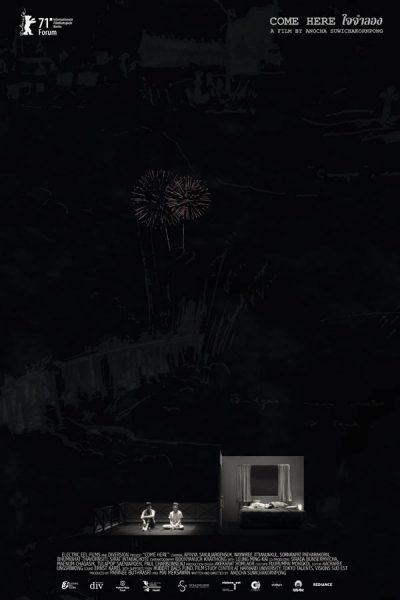
“Come Here” (“Jai Jumlong”) (Thailand) (1/5)
I’m all for cinematic experimentation in the movies. But I draw the line at productions that play like self-indulgent film school projects made by students who assemble montages of their friends engaged in mundane pursuits that they then try to pass off as sublime art. So it is with director Anocha Suwichakompong’s third narrative feature about a group of stage actors vacationing in western Thailand. When they’re not sightseeing or rehearsing scenes for a play, they engage in utterly inconsequential conversations and pose for protracted (and I do mean protracted) silent close-ups. These segments are intercut with images of bookstores, people sleeping, hydroelectric plants, trains and archive footage of a now-closed zoo. But all of this is to what end? Some say it’s a dream. Others contend it’s a visual tone poem. For me, it’s one giant WTF, but, frankly, your guess here would be as good as mine. While the film is admittedly beautifully filmed in black and white, it moves by at a snail’s pace, the kind of picture that makes one long for a fast forward button. In fact, one could probably get up to use the restroom and come back 20 minutes later having not missed anything. I implore you not to waste your time on this one, because it’s an hour and ten minutes you’ll never get back.
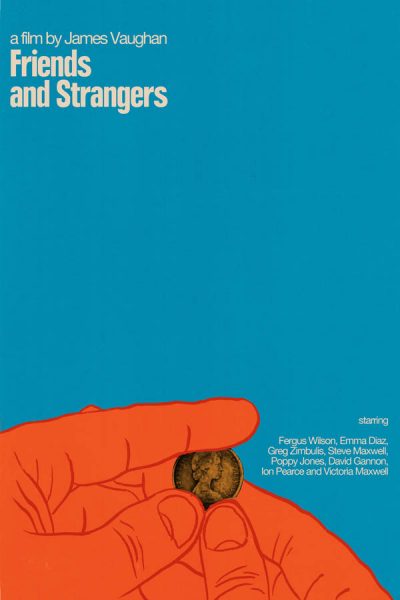
“Friends and Strangers” (Australia) (1/5)
Web site, Trailer
I’ll come right to the point about this one – it sucks, and in more ways than I can count. Writer-director James Vaughan’s debut feature may bill itself as a comedy, but there is absolutely, positively, unquestionably nothing funny about it, other than perhaps being an utterly laughable joke in itself. This cinematic mess has been called a wry, witty, understated look at the ennui of lost, self-conscious millennials comically searching to find their way in contemporary Australian culture and society. I call it self-indulgent, incomprehensible B.S., a collection of uncorrelated film clips strung together trying to pass themselves off, individually and collectively, as something ironic and allegedly profound. I laughed only once during the film’s 84-minute runtime, which, because nothing essentially happens, seems far, far longer than what the clock might say. It’s sad that the Australian movie industry, which has long been known for producing many great films, has to suffer a blemish like this on its reputation. It truly deserves better treatment than that.
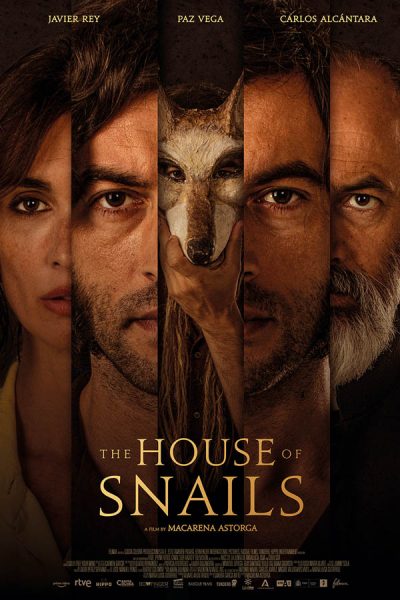
“The House of Snails” (“La casa del caracol”) (Spain/Peru/Mexico) (1/5)
Take a pinch from every horror movie genre you’ve ever seen, order them in an incoherent sequence and add a big reveal that’s not too difficult to spot from a distance (despite attempts at throwing in misdirections or red herrings), and you’re left with this predictable, underwhelming, occasionally gratuitous Spanish entry in a genre that’s all too often characterized by these trite shortcomings to begin with. Besides the foregoing issues, the film also suffers from hammy overacting, formulaic timing for the introduction of clichéd revelations, and, of course, the requisite blatantly bad decision-making typical of most horror films. And then there’s the title, which has precious little to do with what actually unfolds on screen and in many ways feels like an afterthought thrown in to keep viewers guessing at its relevance (which, by the way, is largely unsatisfying to boot). Director Macarena Astorga’s debut feature shows she truly has her work cut out for her as a filmmaker. In fact, I don’t think it’s a stretch to say that even devoted fans of this genre would probably walk away disappointed from this one.
Copyright © 2021, by Brent Marchant. All rights reserved
Tune in for the latest Cinema Scribe segment on Bring Me 2 Life Radio, Tuesday, October 26, at 2 pm ET, available by clicking here. And, if you don't hear the show live, catch it later on demand on Spreaker, Spotify, Apple, iHeartRadio, Google Podcasts, Castbox, Deezer, Podchaser and Jiosaavn.
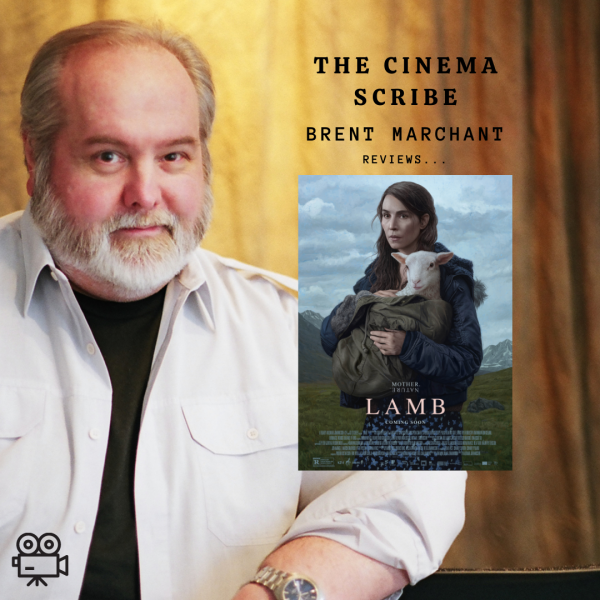
Reviews of "Lamb," "Lightships" and "Down in Paris," as well as a film festival wrap-up and a magazine article preview, are all in the latest Movies with Meaning post on the web site of The Good Media Network, available by clicking here.

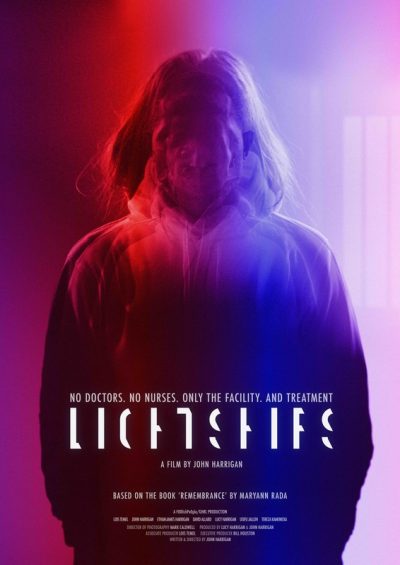
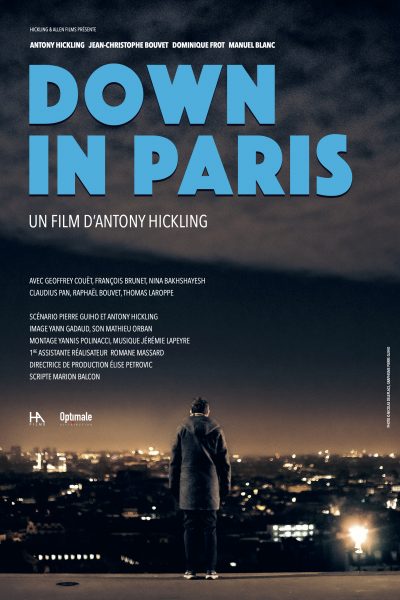




“Lamb” (“Dýrið”) (2021). Cast: Noomi Rapace, Hilmir Snær Guðnason, Björn Hlynur Haraldsson. Director: Valdimar Jóhannsson. Screenplay: Valdimar Jóhannsson and Sjón. Web site. Trailer.
It’s not always easy when it comes to doing the right thing. Then again, there are plenty of instances when it should be patently obvious what we’re supposed to do. But, if that’s really the case, then why do so many of us make questionable choices when confronted with such circumstances? These are among the issues explored in the unusual new, genre-crossing Icelandic offering, “Lamb” (“Dýrið”).
For Maria (Noomi Rapace) and Ingvar (Hilmir Snær Guðnason), an Icelandic farming couple living in the shadow of the North Atlantic island’s remote and imposing mountains, life is rather bleak. They spend their days methodically raising a flock of sheep and planting crops in the rough terrain, going about their work matter-of-factly in a practiced, no-nonsense manner. Beyond that, however, there seems to be little joy in their day-to-day existence, especially when it becomes apparent that the childless couple has experienced a devastating loss, one that they never speak of openly, despite the all-consuming role this tragedy has played in their lives.
With the onset of spring and the start of the lambing season, the mood on the farm lightens somewhat with the arrival of newborns to the herd. Their births bring occasional uncharacteristic smiles to the faces of Maria and Ingvar. They’re especially pleased that the numbers in their flock have increased impressively over previous years. Glimmers of optimism even appear to sprout. But, before long, something unexpected happens, drastically shaking up the couple’s normal routine. In fact, the magnitude of this event is so great that it drastically shakes up life on the farm.
(Note: Those who wish to be surprised about this bombshell should probably stop reading here, because describing its precise nature could conceivably be construed as a spoiler, a practice in which I ordinarily refuse to engage. However, because this development comes so early in the film and impacts its story line from this point onward, it’s fundamentally difficult to summarize this offering without revealing what transpires at this juncture. With that in mind, then, read on at your discretion; otherwise, switch over to one of my many other blogs or three published books.)
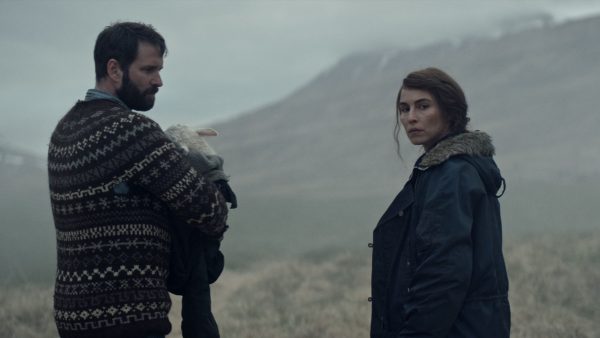
As Maria and Ingvar deliver their latest newborn, a shocked look comes over their faces. Viewers aren’t let in on the secret, not only initially, but even for some time thereafter. Nevertheless, it’s quite apparent that there’s something decidedly different about this birth. What’s more, despite the mysterious, almost sinister treatment of this event, Maria and Ingvar seem unexpectedly receptive – almost elated – in response to what’s happened. They’re seen smiling much more often, and they express an unusual amount of care and compassion toward this particular newborn, far more than what they show any of the other new arrivals. They even assume the nurturing process, moving the little one into their home and raising it like a child. But there’s a reason for that: As is eventually revealed, the newborn is, in fact, a lamb-human hybrid, a female whom the couple has named Ada.
With the passage of time, Ada grows and develops, her head and neck being that of a lamb and the remainder of her body assuming the form of a human. Even though she can’t speak in the same manner as her human companions, it’s clear she’s intelligent and comes to understand language just as any child gradually would. She’s able to respond to instructions, walk upright and even express affection toward her adoptive parents. For all practical purposes, Maria and Ingvar treat Ada as their daughter, dressing her in human clothing and treating her like a member of the family. This gives them great joy, the kind that they obviously haven’t experienced for some time.
However, the sanctity of this unconventional household soon becomes threatened on several fronts. For starters, Ada’s birth mother – an evidently aggravated ewe upset that her offspring had been taken away from her – begins exhibiting menacing behavior toward the couple and their trusty herding dog. Maria is particularly troubled by this development and begins weighing her options for how to respond.
Then there’s the unexpected arrival of Ingvar’s brother, Pétur (Björn Hlynur Haraldsson), a down-on-his-luck former musician with a seemingly dubious past. He has a history of periodically showing up when he needs something, like money or a place to stay, accommodations and resources that Maria and Ingvar are willing to trade in exchange for help on the farm. In essence, he truly is the black sheep of this family. But, when he discovers what’s going on with Ada, he’s appalled, looking upon the circumstances as wholly unnatural. When Pétur airs his concerns, Ingvar tells his brother that he’s welcome to stay as long as he wants provided he refrains from interfering in the family’s affairs. He begrudgingly agrees to these terms and eventually even comes to befriend his “niece.” But, despite outward appearances, it’s apparent that he’s also holding something back, as if he’s got a clandestine agenda that he’s looking to play out, and it’s unclear how the fulfillment of his plans might affect Maria, Ingvar and Ada.
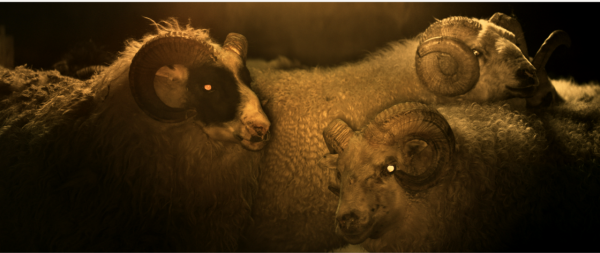
With these elements in place, the stage is set for the unfolding of this modern-day fable. How matters transpire will depend on a variety of factors, including some whose seeds have already been sown, some that arise anew, and all of which assume startling and unanticipated forms. Life down on the farm clearly departs from expectations, including those of both the characters and viewers.
No matter how often or how many different ways it may be said, one of life’s truisms maintains that “Actions have consequences.” We may not always like the implications of that. In fact, we may go out of our way to distance ourselves from the fallout of such circumstances, fruitlessly attempting to rationalize the ramifications into oblivion. But, try as we might, they’re there nevertheless, and we ultimately have to deal with them – or face the music of our actions.
Those actions and resulting consequences are the handiwork of our own making, manifestations that emerge into existence as a result of our thoughts, beliefs and intents. This principle is the foundation of the conscious creation process, the philosophy that maintains we materialize the reality we experience through the power of these intangible resources. And, even though these ethereal, often-imperceptible building blocks may seem patently insubstantial, that’s not to suggest that they have no impact, for they are inherently powerful forces for bringing our existence into being in all of its myriad components – for better or worse.

If we’re to lead peaceful, contented, fulfilling lives, we must never lose sight of this, for, if we do, we may suffer some serious blowback. Employing our thoughts, beliefs and intents to achieve desired goals with no consideration for the consequences can be rife with problems. The unintended side effects alone can be hard to handle once they materialize, potentially making our challenges even more difficult than when we embarked on our manifestation efforts. This is the essence of un-conscious creation (otherwise known as creation by default), a perilous course, to be sure. And, for their part, Maria and Ingvar increasingly face the intricacies and complications of that prospect as events unfold.
It’s common knowledge in conscious creation circles – and just plain common sense elsewhere – that we reap what we sow. We may be able to choose what we wish to create, but we must subsequently accept responsibility for those creations once we bring them into existence, no matter what form those materializations may take. We can’t disavow ourselves from what originated with us. In essence, we can’t unscramble the egg, no matter how hard we may try or how justified we might feel in pursuing such a course in the first place. You can call it karma or payback or any of a number of other terms, but, in the end, the implications are the same in each case.
In many ways, it’s truly perplexing how someone can’t see this when they embark on what is obviously a dubious course. For example, how would Maria and Ingvar feel if a ewe took their child to claim it as her own? As the film so effectively shows in its reaction shots of the mother sheep, we’re not dealing with some dumb, emotionless farm animal here. Like any maternal figure, she has a vested stake in protecting the well-being of her offspring, and it’s not unreasonable to think she would just give up on that obligation, no matter how lovingly her adoptive human parents might treat the newborn.
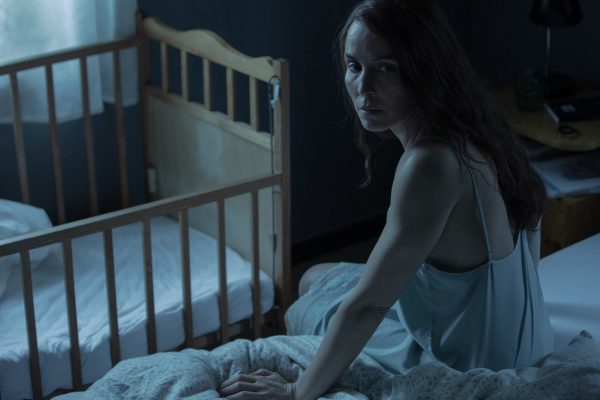
From the moment Maria and Ingvar decide to start raising Ada as their own, they pursue a course of textbook un-conscious creation. Regardless of what care and compassion they invest in the newborn’s upbringing, their decision to proceed as they do is more about what suits them than anything else. They may believe they’re doing the right thing. They may even feel justified in what they do in light of their own past circumstances. But, in the end, they still fail to ask themselves the core question at the heart of this scenario – are they acting properly and in everyone’s best interests, both for man and beast?
At its heart, “Lamb” is thus a morality play down on the farm, a cautionary tale about the intrinsically intertwined relationship between actions and consequences. It urges us all to think before we act, to avoid the temptation of knee-jerk reactions that may feel good but are questionable at best, to consider the implications of what can result when we pursue a perilously problematic course. This truly is a case where putting thought into our actions up front can save us considerable anguish by failing to do so.
This is not to suggest that the film is all deadly serious drama, however. This deliciously refreshing surprise features an unusual (and I do mean unusual) blend of mystery, horror, folk tale, and dark, offbeat comedy that will easily tickle those whose funny bones lean toward the strange and macabre. Imagine a contemporary story told in the style of a Grimms fairy tale, and you’ve got a pretty good idea what’s in store in this stylish, hilarious, creepy and darkly charming release. Writer-director Valdimar Jóhannsson’s debut feature definitely won’t appeal to everyone, but those who appreciate fresh, inventive material will love this immensely creative offering, told with subtle, tongue-in-cheek wit, gorgeous cinematography and a style that successfully relies more on showing than telling. “Lamb” is further proof that the Icelandic film industry is indeed one of the most innovative on the planet these days, serving up entertaining and thought-provoking offerings that movie communities in other countries could learn a lot from. The film is currently playing in theaters.
Many of us often find ourselves lamenting, “If only life were easier….” Yet there are also times when it seems that condition is met and we still don’t live up to what’s expected of us. In those cases, maybe we need to step back and survey the ethical landscape before us before making any rash decisions that we’ll regret later. Some might see such hesitancy as sheepish; others will see it as prudent – and wise.
Copyright © 2021, by Brent Marchant. All rights reserved.
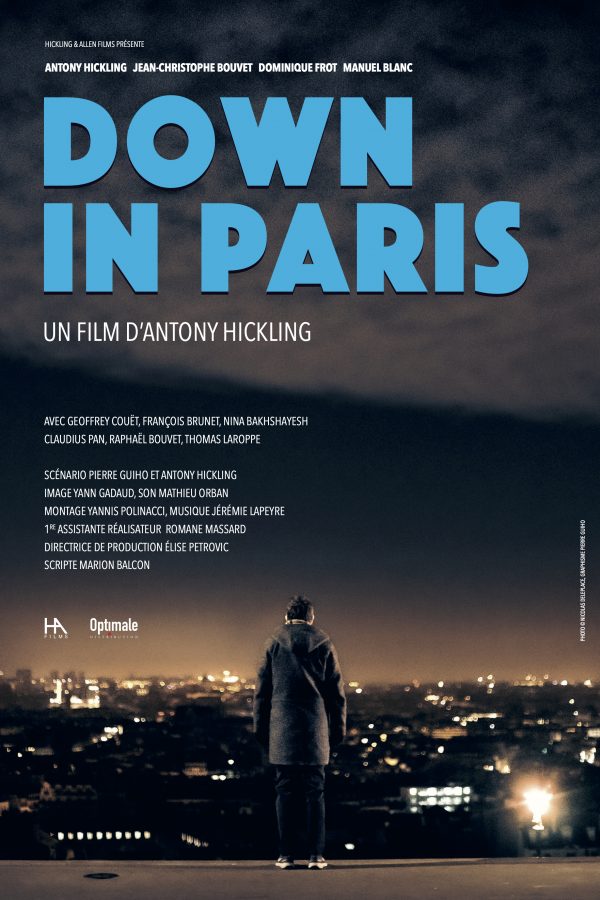
“Down in Paris” (2021). Cast: Antony Hickling, Jean-Christophe Bouvet, Dominique Frot, Manuel Blanc, Geoffrey Couët, François Brunet, Nina Bakhshayesh, Claudius Pan, Raphaël Bouvet, Mike Fédée, Thomas Laroppe. Director: Antony Hickling. Screenplay: Antony Hickling, Pierre Guiho and Raphaël Bouvet. Web site. Trailer.
Recovering what we’ve lost can be a challenging pursuit. What’s more demanding, however, is searching for something we’ve lost that we don’t realize is missing. This can be especially problematic when it involves our sense of personal power, for its absence can leave us vulnerable to all manner of issues that we don’t know how to fix because we’re unaware of what’s lacking to make restitution. Such is the dilemma faced by a searching middle-aged artist in the compelling new French character study, “Down in Paris.”
No matter how hard he tries to make things work, filmmaker Richard Barlow (Antony Hickling) just isn’t feeling it when it comes to his latest picture. After a difficult and frustrating day of filming, the English director, who lives and works in Paris, struggles to wrap up the day’s shooting schedule, but nothing seems to go right. He can’t quite pinpoint the trouble, either, but every alteration he attempts to make leaves him dissatisfied, even after 15 takes on shooting one scene. He paces around the set like a caged animal, irking or intimidating everyone around him. Richard’s assistant, Simon (Geoffrey Couët), tries to help, but the director is so wired that his aide’s suggestions fall on deaf ears. Indeed, Richard seems to be in the midst of a full-fledged anxiety attack. Finally, in light of the disastrous way things are going, Richard’s producer, Maurice (François Brunet), intervenes to avoid a complete meltdown on the set, sending the filmmaker home for the night to compose himself and get some rest for a fresh start the next day.
Richard leaves the studio and begins wandering the streets of Paris. Little does he know that he’s about to embark on a night-long odyssey that will change his life – and him. He first wanders into a bar for a quick drink where he meets Elizabeth (Nina Bakhshayesh), a fellow Brit who unsuccessfully makes a play for Richard, unaware that the filmmaker is gay. They nevertheless share a friendly conversation that helps to lift Richard’s spirits, putting him a seemingly better mood for the evening.
Upon leaving the bar for a previously scheduled meeting, Richard has a chance encounter with his ex-boyfriend, Frédéric (Raphaël Bouvet), and his new partner, Tom (Thomas Laroppe). While the conversation starts out innocently enough, Richard and Frédéric quickly come to blows, rehashing old hurts, many of which Richard apparently tolerated more than he should have. Fortunately, a passing Samaritan steps in, breaking up the altercation and enabling Richard to continue on to his appointment.
Like his conversation with Elizabeth, Richard’s previously scheduled engagement helps to calm him down. That meeting is with his friend Samantha (Dominique Frot), a spiritual advisor and Tarot card reader. During their session together, Samantha discovers that Richard has been shouldering the weight of a number of recent losses, most notably his breakup with Frédéric and the agonizing death of his father, who succumbed to cancer. not long ago Samantha notes that Richard’s pain is palpable and that her previous prediction about Frédéric being a source of trouble had indeed come true. However, she adds that the cards say good things lie ahead for her friend as long as he’s willing to be open to them, primarily by letting go of the past and allowing his true self to shine through. Richard acknowledges that Samantha’s observations are on target and that, while some of what she said may have been difficult to hear, he knows these are issues he must address. The upshot of this is that it places him in a better frame of mind, one in which he appears to be more willing to be honest with himself and to follow the advice Samantha gave him.
After leaving his meeting with Samantha, Richard is in a better mood but not ready to head home. He decides to continue wandering the streets of Paris, a journey during which he experiences a number of encounters that bring him face to face with himself and provide him with a greater sense of personal clarity. He first stops in a church, where he has a spiritual awakening of sorts after a bewildering conversation with a mysterious stranger (Claudius Pan), one in which he’s forced into addressing his fears, doubts and insecurities. He then comes to the rescue of an old man (Jean-Christophe Bouvet) who’s harassed by a pair of punks in a late night eatery, an incident that leads to a profound but brutally honest chat. He subsequently pays a visit to an old friend, Mathias (Manuel Blanc), someone whom he sincerely believes he once egregiously let down; engages in an explicitly erotic encounter with an intergenerational couple in a gay bar; and experiences a surreal, apparitional episode along the banks of the Seine with a young boy who seems eerily familiar. He even has another chance meeting with Elizabeth that proves to be uncannily prophetic.
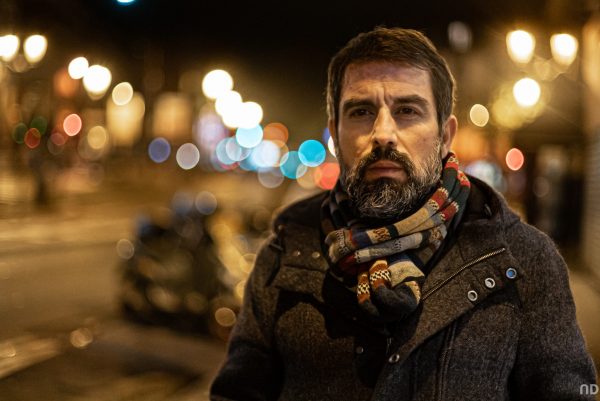
Above all else, though, the night’s adventures turn out to be remarkably revelatory. And, as morning approaches, Richard starts his day with a sense of renewal about himself, his fortunes and even his movie. But will circumstances play out in his favor, providing him with what he seeks and what Samantha foresaw? That’s what he’s about to find out.
Of course, the key question here is, “Why shouldn’t things play out in Richard’s favor?” And, for that matter, why shouldn’t they play out in anyone’s favor? Many of us routinely ask ourselves why our lives aren’t panning out as hoped for. We accept disappointments and discouragement, often settling for less than what we want, sometimes to a great degree. But why are we so willing to do that and not take a closer look at what’s preventing the emergence of the results we desire?
In many respects, that’s what Richard is up against. Despite his obvious flair for creativity, as evidenced by his film work, he somehow fails at being creative enough to resolve the shortcomings in his personal life. And, as becomes apparent through this story, that appears to be attributable to his inability and/or unwillingness to take a good, hard look at discovering the nature of his true self, his inner being, that from which everything in his existence originates.
Introspection is crucial to understanding oneself, particularly where our beliefs are concerned. And this is important because our thoughts, beliefs and intents are the building blocks of our reality, the foundation from which it springs as a result of the conscious creation process, the philosophy that makes this outcome possible.
Richard’s failure to so engage with himself is keeping him from fully realizing his dreams and fulfilling his potential. To a great degree, this has to do with one set of beliefs that’s especially critical – those associated with the management of his personal power, for how well we wield it determines how effectively our beliefs and existence align. Based on Richard’s session with Samantha and his other conversations throughout the night, as well as his contentious interaction with Frédéric, it’s fairly obvious he has a history of either failing to fully tap into his power or, even worse, giving it away to others. That being the case, it’s no wonder he is (and has been) unhappy with certain aspects of his life.
While this issue of disempowerment has primarily involved Richard’s personal dealings, his frustration on the movie set is an indication it may be starting to creep into his artistic life as well. Sadly, he now appears to be experiencing difficulties in an area where they previously hadn’t existed, adding to his burden and exacerbating his overall sense of exasperation.
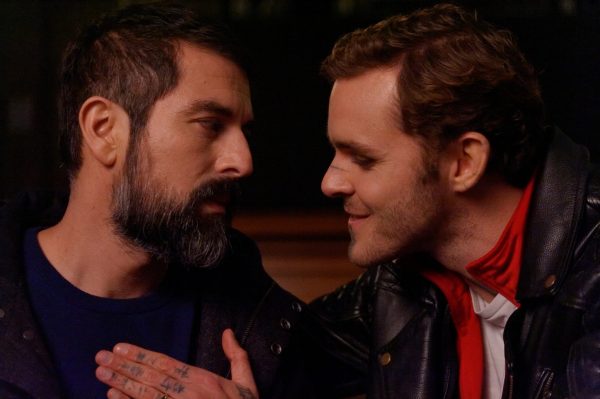
One might wonder what’s behind such a change, but perhaps it’s his inner self’s way of trying to get his attention, prompting him to examine the source of his frustration by nudging him to look at the beliefs driving it, especially now that it’s beginning to show up where it had previously been absent. The issue’s systemic growth within him is like a metaphysical virus, attacking one part of his being as a means of drawing attention to another that has been afflicted but ignored for far too long. This may not be the easiest way to approach this problem, but, as an internal cry for help, it’s forcing Richard to get to the root of the issue in order to resolve it.
It would be in Richard’s best interests to pay attention, too, for the more he resists, the more arduous the process becomes. That’s apparent through the appearance of a number of the challenging situations that arise during his night of wandering around Paris. His confrontation with Frédéric, the personal attack from the stranger in the church and the somewhat tactless honesty of the old man in the restaurant, for instance, are all examples of incidents that his inner self has drawn into his existence to facilitate addressing his empowerment issues. The question for Richard is, “Will he recognize them for what they are and what they’re intended to accomplish?” How well he does or doesn’t succeed at this will help to determine how effective he will be at resolving his empowerment issues and instituting the requisite changes he needs to make to alter his reality to his liking.
By making changes in his beliefs and enabling his altered true self to embrace them, Richard has an opportunity for a brighter future. The seeds of that are apparent in his Tarot reading. Samantha shows him that he need not accept reality as it has historically unfolded; a better, brighter, more fulfilling future is indeed in the cards – literally – as long as he’s willing to do the work to bring it about. For that to happen, though, he must also sweep away what no longer works, and his night on the town in Paris is designed to help point the way toward such an outcome, even if that scenario doesn’t materialize in the way he expected at the time. For Richard’s sake, we can only hope he reads between the lines successfully enough to see what’s really transpiring.
Should Richard pass the test, he should be able to reclaim his power, and, by doing so, he has an opportunity to reshape his life in all areas, not just those in which he previously developed proficiency. That would enable him to become the individual he truly wants to be. Change is truly possible, and Richard now has the chance to at last discover that for himself.
This is undoubtedly an important message for everyone, but I find it particularly poignant for members of the LGBTQ+ community, for several reasons. To begin with, this constituency has long suffered from disempowerment issues, and, even though measures aimed at rectifying this problem have become more prevalent in recent years, many community members are still relatively new at coping with such matters and could definitely stand to benefit from inspiring examples like this.
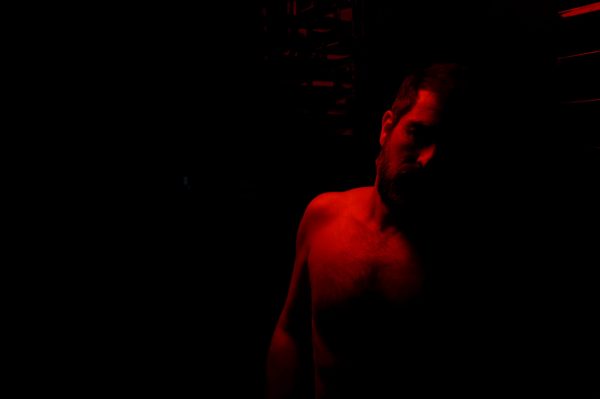
But, perhaps more importantly, this film is significant by encouraging LGBTQ+ community members to get better acquainted with their true selves overall. While honestly addressing orientation questions is certainly a key concern for community members, this consideration is only a part of what makes such individuals who they are; there is much more to their inner selves than sexuality, and those aspects deserve just as much attention, for they determine who those individuals become just as much as their orientation does. “Down in Paris” does a superb job of addressing this, and I applaud the film for doing so. It shows that being gay, lesbian, bisexual, transgender or queer is part of what someone might be, but it also makes clear that it is only a part – that there’s much, much more to an individual’s nature. In this regard, I salute this picture for taking LGBTQ+ cinema in a new direction, one that embraces a wider view of what constitutes films in this genre, particularly what they can and should seek to incorporate. I sincerely hope this is the start of a promising new trend.
Finding ourselves is something we all must do, including members of the LGBTQ+ community. Such is the case in this excellent boundary-pushing character study from writer-actor-director Antony Hickling. Through the protagonist’s numerous encounters over the course of one night in Paris, viewers witness a somewhat lost gay man come into his own as a fully self-actualized individual, one who seeks to understand and take control of his destiny, an inspiring example for anyone who has ever felt in need of direction to get his or her life on track toward a path of satisfaction and fulfillment. While the pacing lags a bit in a few sequences, the film does a generally fine job of keeping the narrative moving and engaging without lapsing into dry, protracted talky scenes that weigh down the work. This impressive offering does much to expand the scope and perspective of what constitutes gay cinema, but one need not be a member of the LGBTQ+ community to appreciate what it has to impart. Sensitive viewers should be aware, however, that the picture contains some sexually explicit content.
Finding “Down in Paris” may take some effort, at least initially. While it has been generally released in its native France, it has been (and for the near future will be) primarily playing at film festivals, such as at the recently concluded Reeling Chicago International LGBTQ+ Film Festival, where I screened it. However, should it go into widespread distribution elsewhere, either in theaters and/or online, I heartily recommend it.
Personal power is something we may not fully appreciate until it’s gone. That’s especially true when we fail to recognize its importance and the role it plays in shaping the existence we experience. However, that’s not to suggest all is lost as long as we’re willing to make the effort to retrieve it and put it to use before it’s too late. And, fortunately, that can happen in unexpected yet remarkably revelatory ways, sometimes by simply partaking in undertakings as improbable as spending a night on the streets of Paris. Of course, we shouldn’t be surprised what can happen in the City of Lights, especially when this magical venue takes on the role of “City of Enlightenment.” Richard can be thankful for this opportunity, provided he avails himself of it and understands what it’s trying to teach him. After all, once he considers what could be awaiting him, the loss of a little sleep and the challenges of a few consciousness-stretching, button-pushing exercises should seem like quite a bargain by comparison.
Copyright © 2021, by Brent Marchant. All rights reserved.